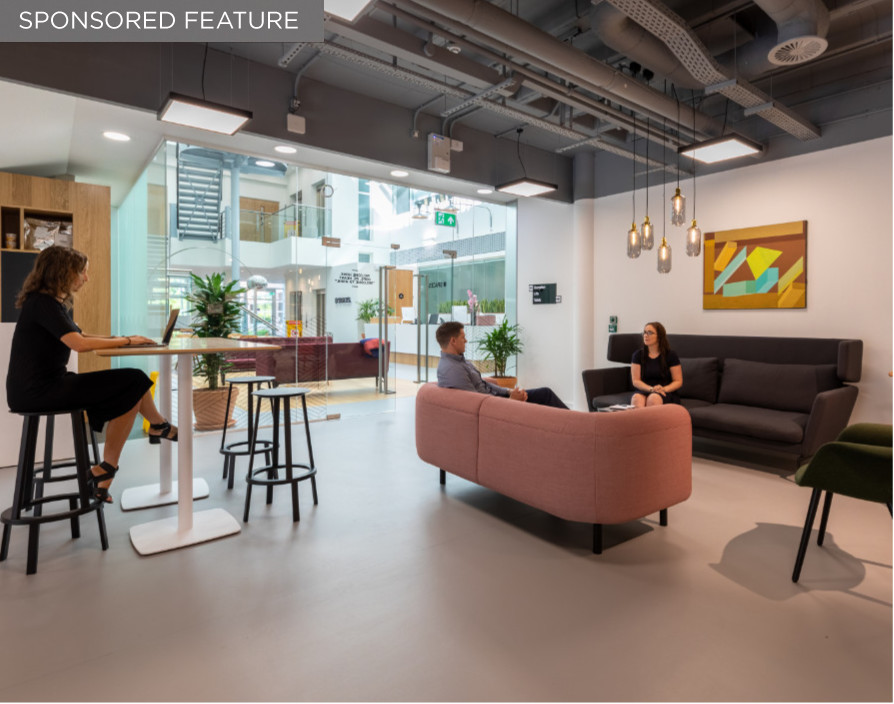The next decade will
witness even more opportunities for flexible working. So don’t delay, find out
how your business can benefit by making the most of flexible workspace, the new
phenomenon in commercial property markets.
Flexible working is growing rapidly, with franchise experts IWG (International Workplace Group) leading the way in many parts of the globe with brands like Regus and Spaces.
The growth of flexible working has, in reality, been around for many years. However, it is quickly gathering pace, and there are a number of reasons for this growing trend.
Firstly, companies understand the need to attract and retain top quality staff, and one way of keeping them onside is to make their day-to-day experiences as attractive as possible
Providing employees with a good work-life balance is just as important as offering a competitive salary.
Second, modern digital technology is making it easier than ever for work to be carried out in a more flexible manner.
Third, many companies are increasing the amount of outsourcing they undertake, by employing consultants and smaller start-up operations to carry out some of their duties.
Finally, since the financial crash, companies are more wary of agreeing long-term lease agreements, making ‘short-term’ a more attractive option.
And IWG is already taking steps to offer businesses the chance of extending their current flexible practices, while also on the lookout for new franchise partners.
According to IWG, ‘by the year 2030, it is predicted that 30% of all commercial real estate will be flexible workspace, while flexible working will be worth over £8 trillion to the economies of 16 leading countries alone.”
IWG is already ahead of the game, and has witnessed a rapid growth in it’s flexible workspaces, highlighted by brands such as Regus and Spaces.
A report by consultancy firm The Instant
Group discovered that demand for flexible workspace increased globally by 19% last year.
They elaborate on this by describing how the growth in the supply of flexible space was ‘the number one story’ in commercial property markets around the world.
John Williams, head of marketing at The
Instant Group, explains how large companies have had to become more flexible and have changed the way in which they operate.
He says: “It’s a combination of reasons. It’s an increase in the contingent workforce – consultants, one-man bands and start-ups – as well as the fact that larger companies now work in a more agile way.
“IWG continues to cover more ground into national and regional markets. Businesses are now keen to offer their employees more choice in where and how they work, and digital technology enables them to work anywhere.”
And Williams pinpoints another reason why companies favour the advantage of using flexible workspace.
He says there is often a reluctance to sign long-term lease agreements, which can restrict flexibility in many different ways – and not just financial.
He added: “Corporates are less keen now on signing lease agreements for the long-term, as business cycles have become shorter since 2008 and companies have had to become more agile to adapt to this change.
“This means being able to grow, and contract, quickly rather than being tied to one space for 10 years or more.”
Despite the rise in flexible workspaces, much of this footprint is still concentrated within the world’s major cities. According to a report, New York and London take up the lion’s share of available sites.
IWG’s portfolio of operating brands, with Regus at the forefront, is continuing to expand into these major cities, but have also enjoyed growth in other territories too.
During the past 12 months, the company has established new office space in places such as Braga, Bilbao, Rennes, Gdansk, or the Cambridgeshire town of Huntingdon.
Many probably think such changes have been dictated by growth in the creative sector but, according to Williams, this could not be further from the truth.
He adds: “There is a misconception that it is millennials who work in the creative or tech industries that are driving this change. But this is not the case at all.
“We are finding in the US and UK, it is actually financial services and professional services organisations, who are using flex space more than tech companies.
“It is larger companies taking bigger requirements of flexible workspace that are among the fastest growing segments in the ‘flex-workspace’ sector.”
Williams suspects flexible workspace will make up 30% of the market in the next decade. So now is the perfect time to capitalise on this new business opportunity.
IWG, the global leader of flexible workspace and coworking, has launched its franchise offering, based on its own proven business model. They have more than 30 years of experience with global brands such as Regus and Spaces, and have already signed up 6 franchise
partners in the UK.
It’s an opportunity to diversify away from traditional franchise industries, while benefiting from strong cash returns, and access to over 2.5m customers.
For more information get in touch via the details below.
franchise.iwgplc.com | [email protected]
Or, Come and meet us on the dates/locations below to learn more about our business model and how you can get great returns from it.
28
January – Glasgow at Spaces, 1 West Regent Street, G2 1RW
11
February – London at Regus, 100 The Grange, Southgate, London, N14 6BN
Click
here to know the dates in your area.


































